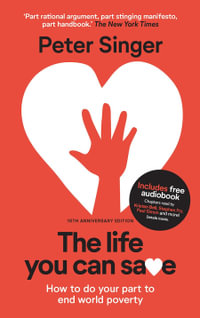Through a series of candid personal interviews with nearly one hundred donors, Why the Wealthy Give offers an in-depth look at the world of elite philanthropy. Francie Ostrower focuses on the New York City area, with its high concentration of affluent donors, to explore both the motivations of individual donors and the significance of philanthropy for the culture and organization of elite groups. In so doing, she offers an account of why the wealthy give that also provides insight into the nature of elite culture, status, identity, and cohesion. Emphasizing the diversity of philanthropy, the book also shows how and why different types of donors support different causes. It further demonstrates how, in the face of considerable change, elite philanthropy has adapted and therefore endured. A timely discussion explores the ways in which elite donors view the respective roles of government and philanthropy. Why the Wealthy Give shows that elite philanthropy involves far more than writing a check. The wealthy take philanthropy and adapt it into an entire way of life that serves as a vehicle for the social and cultural life of their class. This is reflected in the widespread popularity of educational and cultural causes among donors. At the same time, Ostrower finds divergent patterns of giving that reflect alternative sources of donor identity, such as religion, ethnicity, and gender, and explains why certain kinds of donors are more or less likely to diverge from the prestige hierarchy of their class in their philanthropy.
Industry Reviews
Winner of the 1996 Virginia A. Hodgkinson Research Prize, Independent Sector Co-Winner of the 1996 ARNOVA Award for a Distinguished Book in Nonprofit and Voluntary Action Research "This superb book will be required reading for scholars, fundraisers, nonprofit administrators, trustees, and anyone who is interested in the lives of the wealthy and well-born."--Kathleen McCarthy, Director, Center for the Study of Philanthropy "Ostrower's book is one of the finest pieces of social science research to emerge from the new academic field of philanthropic studies... This important book demonstrates that the most professionally rigorous forms of social science analysis can be presented in lucid prose and easily comprehended ideas."--Choice
























